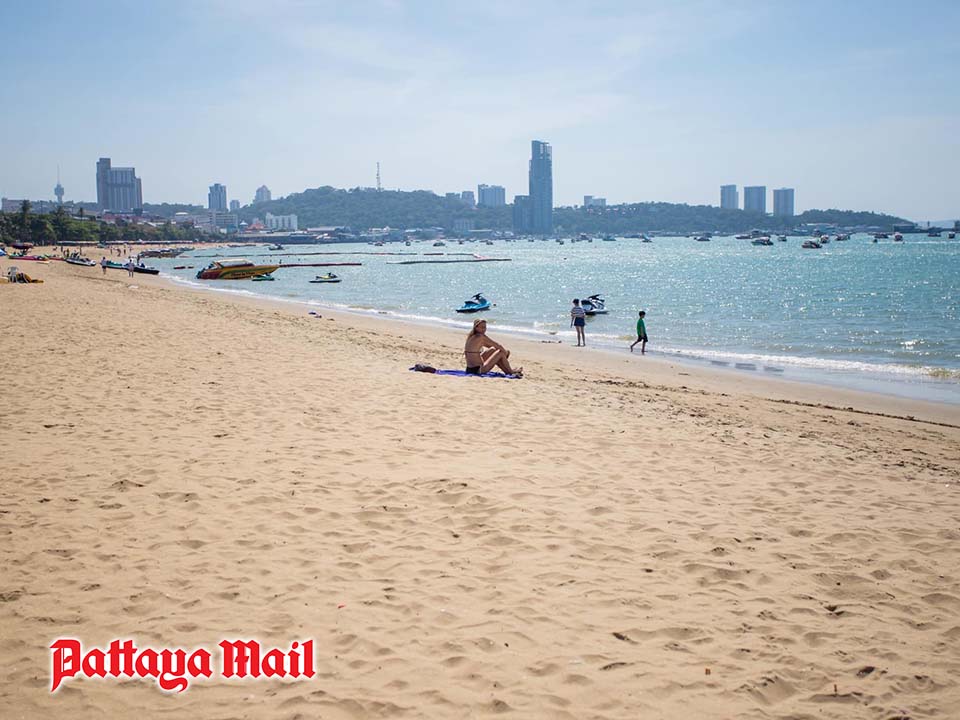Pattaya’s Painful Reset: Overdependence on mass tourism and the fresh wounds of China’s disappearance
When the Chinese tour buses stopped, Pattaya’s economy hit a wall—leaving crowd-dependent businesses struggling to survive. (Photo by Jetsada Homklin)
PATTAYA, Thailand – For years, Pattaya thrived on the power of numbers. From budget hotels and bustling buffets to beachside vendors and shopping centers, nearly every layer of the city’s economy was built around one thing: mass tourism. And among those tourists, none were more crucial to the city’s rhythm than the Chinese.
Now, with Chinese visitors all but gone, Pattaya is facing its most painful reckoning yet.
Before the pandemic, the city pulsed with group tours from China. Buses unloaded hundreds daily, who fanned out to cabaret shows, floating markets, massage shops, and seafood restaurants. Signs in Mandarin lined storefronts. Entire blocks of the city catered to their habits, language, and spending behavior. The money was steady, predictable, and transformative.
Then it stopped.
As of mid-2025, Chinese tourist arrivals to Thailand remain far below previous levels. In the first five months of this year, fewer than two million Chinese travelers entered the country—a shadow of the 11.1 million seen in 2019. And for Pattaya, one of the country’s most China-dependent destinations, the absence feels like a fresh open wound.
Local businesses are suffering in silence. At a buffet restaurant near Bali Hai Pier, the manager says he used to serve five full tour buses a day, all from China. Now, on many nights, the dining room stands nearly empty. Once-busy shops selling trinkets, cosmetics, and snacks tailored to Chinese tastes now sit idle or have quietly shuttered. Massage parlors that once had waiting lists now stand with lights off and doors locked.
The pain is not limited to small vendors. Mid-range hotels that relied on quick-turnover group bookings report high vacancy and declining revenue. Many properties were built specifically for tour groups—with large dining halls, limited amenities, and minimal staff training for independent travelers. That model no longer works.
What makes this downturn especially damaging is that it was avoidable. Pattaya had long seen the warning signs of its overdependence. Tourism experts warned that building an economy on one dominant market, with one dominant behavior pattern—mass arrival, fast consumption, quick departure—was risky. But the money was too good. Tour operators, hotel developers, and city officials leaned into the boom without preparing for a bust.
The reasons for the Chinese disappearance are complex, but to Pattaya’s street-level business owners, the causes matter less than the consequences. For them, it isn’t about international politics or demographic shifts. It’s about lost income, reduced staff, and uncertain futures.
There is also a growing concern that the damage might not be temporary. Pattaya’s over-customization for mass Chinese tourism—signage, pricing, menus, and merchandise—has created a narrow appeal that may deter travelers from other segments. Indian, Russian, and European visitors continue to arrive, but in different patterns and with different preferences. They don’t travel in tour groups, and they don’t spend in the same concentrated ways.
What’s more, the Chinese tourists who are starting to trickle back are different from before. Many prefer independent travel now, seeking meaningful, tailored experiences rather than group shopping tours. Pattaya, in its current state, may not appeal to this new generation.
To sum up, Pattaya is caught between a past that no longer works and a future it hasn’t yet prepared for.
What the city needs now is not just promotion or incentives—but reinvention. The time of relying on five buses a night is over. The days of building around a single market are done. If Pattaya is to survive—and thrive—it must create a new foundation: one based on flexibility, diversity, and resilience.
Because for Pattaya, the disappearance of Chinese tourists is not just a market shift—it’s a warning. And if it goes unheeded, the city may find itself not just recovering slowly, but left behind entirely.



